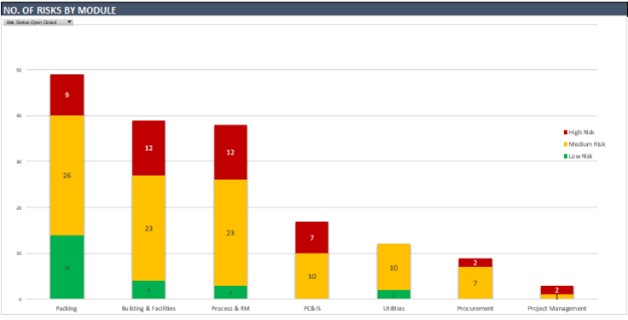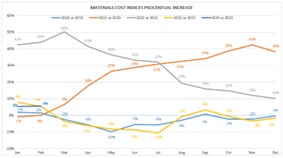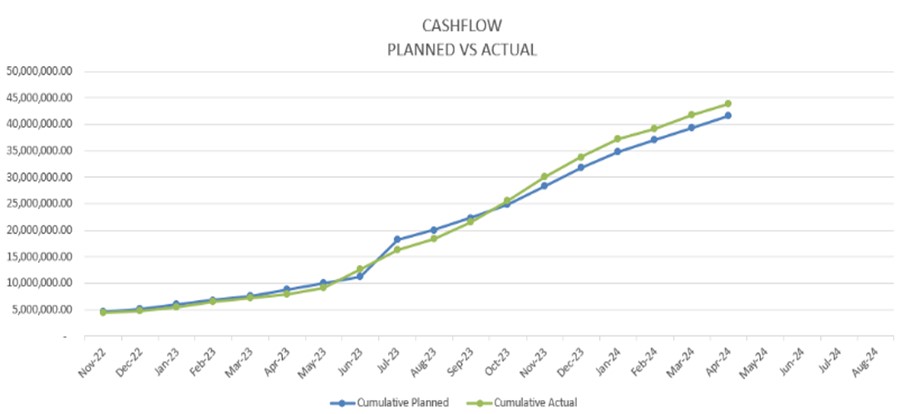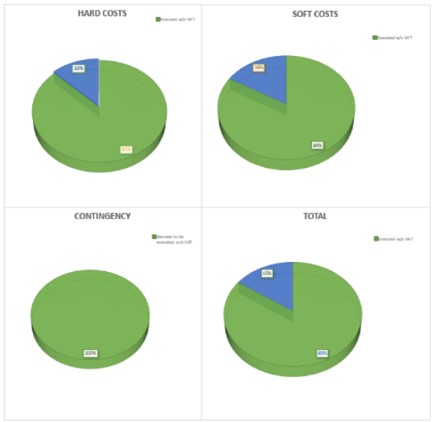The Importance of Cost Management in Construction Projects

Business is fundamentally about managing costs, as the purpose of being in business is to ensure that revenues exceed expenses. Successfully managing project costs greatly increases the chances of the project’s success.
Project cost management involves maximizing predictability and control over project expenses by closely monitoring costs throughout the project’s lifecycle. This process enables project managers to identify cost trends, variations, and deviations, allowing them to make well-informed decisions to maintain the project’s financial stability.
Finishing a project on time and within budget is great, but finishing the project on time and under budget is even better.
With over 17 years of expertise in construction and a strong track record of successful projects, Blue Projects offers a wide range of cost management services, including estimations, conceptual budgets, project cost reviews, value engineering, cost control throughout the execution process, and comprehensive cost reports and evaluations for diverse investments.
Managing project costs involves defining the value of the project, securing the budget, and ensuring that it is delivered within that approved budget. Though cost estimating operates at the level of activities, cost budgeting aggregates these figures at the project level to produce a cost baseline and the project funding requirements. The aggregation process involves more than simply adding the figures from the estimating process to create overall totals.
To maximize the benefits and opportunities and minimize the risks of value engineering, the project team should have a robust knowledge and understanding of alternative construction techniques and the options for using different materials.
With inhouse capabilities for Architectural, Structural and MEP Design but also Project, Cost and Planning management, Blue Projects adds-up enhanced Value Engineering to the projects.
Value Engineering is a process that aims to maximize value through either enhancing design, reducing cost, minimizing risk, or lowering the overall life cycle cost of the asset under development. Knowledge and understanding of client value are intrinsic to the value engineering process, during which the cost management team should apply technical knowledge (including alternative construction techniques and cost data comparison) to offer informed solutions.

Cost management is an essential component of risk management, as it includes recognizing and dealing with possible cost-related risks that may affect project finances. Through risk assessments and implementation of mitigation strategies, project teams can proactively manage factors that might cause cost overruns, delays, or disruptions. Real-time monitoring of project costs allows stakeholders to promptly address potential risks and make well-informed decisions to protect the project budget.

Managing costs effectively requires maintaining solid connections with vendors and suppliers to secure competitive pricing, guarantee prompt delivery, and acquire top-notch materials or services. Participating in supplier negotiations, consistently assessing their performance, and exploring other sourcing options allows project teams to proficiently control procurement expenses and minimize the likelihood of cost escalations. Maintaining transparent communication with vendors fosters accountability and contributes to managing expenses effectively.

For the projects Blue Projects delivers, cashflow is an essential Deliverable of which our Clients benefit from.
The financial management of any business heavily relies on cash flow, which is crucial for handling income and expenses and maintaining sufficient liquid funds for operations.
Cashflows offer an advance indication of any potential future shortage of available funds, allowing for implementing contingency plans and making decisions, such as securing alternative funding sources. Monitoring and predicting cash flow is crucial for effectively managing any business, especially in the construction industry, where contractors typically receive payment after completing the work.

Monitoring project performance and financial metrics is essential for cost management in construction projects. By tracking key performance indicators, such as cost variance, earned value, and cash flow, project managers can assess project health, identify trends, and make data-driven decisions to control costs effectively. Regular reporting to project stakeholders helps maintain transparency, accountability, and alignment with project objectives.
Emphasizing the importance of cost management from project initiation to completion is key to driving financial sustainability and excellence in construction project delivery.
References
RICS guidance note – RICS and global cost and commercial management of construction/1st Edition, Published by the Royal Institution of Chartered Surveyors (RICS)
Project Skills – Managing the Project Budget, Paul Newton